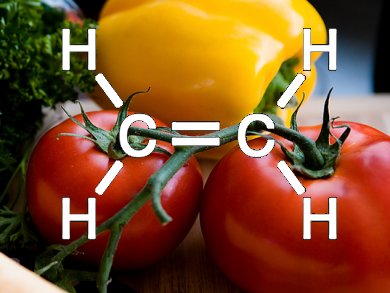Ethylene is a plant hormone involved in fruit ripening. The requirement for its biosynthesis is one of the criteria distinguishing climacteric fruits from non climacteric ones. Climacteric fruits are able to ripen after being packed. Sonia Osorio, Max-Plank-Institute für Molekulare Pflanzenphysiologie, Postdam-Golm, Germany, and colleagues add new aspects to this concept.
The scientists compared the maturation process of climacteric and non climacteric fruits such as tomatoes and peppers, respectively. Their analysis revealed that, in contrast to tomatoes, during ripening, peppers up-regulate only one of the genes responsible for ethylene biosynthesis. Nevertheless, as do tomatoes, peppers activate ripening-related genes downstream ethylene perception. The study thus suggests that in tomatoes and pepper the ethylene-mediated signaling components are similar but subjected to a different regulation which might reflect a diverse ethylene sensitivity in the two fruits.
- Integrative comparative analyses of transcript and metabolite profiles from pepper and tomato ripening and development stages uncovers species-specific patterns of network regulatory behavior,
S. Osorio, R. Alba, Z. Nikoloski, A. Kochevenko, A. R. Fernie, J. J. Giovannoni,
Plant Physiol. 2012, 159 (4), 1713–1729.
DOI: 10.1104/pp.112.199711




